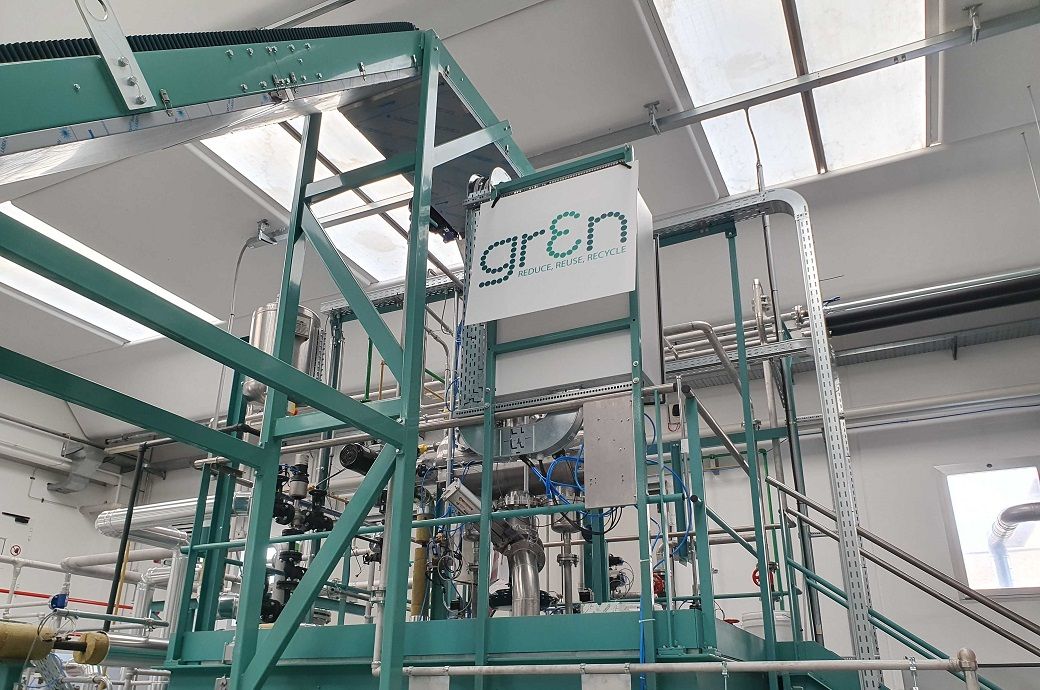
gr3n SA and Intecsa Industrial are set to produce 40,000 tons of recycled polyethylene terephthalate (PET) per year by 2027. gr3n’s special chemical recycling technology is capable of processing PET from various industries including textile waste, closing the loop for hard to recycle PET applications, gr3n SA and Intecsa Industrial said in a joint press release.
“This is a huge step for gr3n, as it will allow us to grow even more, showing enhanced recycling is something tangible and that it is possible to bring MADE, our Microwave Assisted Depolymerisation, to market,” said Maurizio Crippa, gr3n founder and chief executive officer. “Shareholders have the full view on gr3n’s operations, so moving forward with one of them is further confirmation of their trust but also of the strength of the data and the results generated.”
gr3n’s process has the potential to change the way PET is recycled worldwide, enabling huge benefits for both the recycling industry and the entire polyester value chain. Many efforts have been made in the past to transfer enhanced recycling from research laboratories to the manufacturing industry, but the economics and scepticism of the first adopters have constantly blocked the progress of the proposed solutions. Thanks to the MADE technology developed by gr3n, this approach is now feasible and makes gr3n one of the few companies with the potential to provide a reliable enhanced recycling solution that closes the life cycle of PET and also offers food grade polymer material, processes a large variety of waste and reduces carbon footprint of these materials usually destined for incineration or landfill, added the release.
Ramiro Prieto, commercial and new business units director at Intecsa Industrial, said: “gr3n has the potential to change the recycling industry, as their technology allows us to tackle things other technologies cannot.
“This means expanding the raw material that can be recycled, then accelerating the transition to the circular economy. As industrial partner and shareholder, we are part of the board, but we have also had the opportunity to perform the basic engineering of the industrial plant. Thus, we are well acquainted with the technology which we firmly believe is now ready to level up”.
“We’re really thrilled to see all the great things gr3n is up to and how they’ve been pushing the boundaries of technology, and we believe that gr3n’s technology will be a key player in the path towards the closed loop of the PET sector. Our partnership with gr3n reflects our focus on accelerating the implementation of Intecsa’s deep technical and operational expertise in industrial plants. At Intecsa we are convinced that this will be a game changer,” said Ernesto De La Serna, director of new developments and innovation at Intecsa Industrial.
The world’s first industrial-scale MADE PET recycling plant will have a capability to process post-industrial and post-consumer PET waste including hard-to-recycle waste, to produce approximately 40,000 tons of virgin PET chips from the recycled monomers saving nearly 2 million tons of CO2 during its operating life. The postconsumer and/or post-industrial polyesters will be both from bottles (coloured, colourless, transparent, opaque) and textiles (100 per cent polyester but also mixtures of other materials like PU, cotton, polyether, polyurea, etc with up to 30 per cent of presence in the raw textile).
The technical concept of the MADE plant is to break down PET into its main components (monomers) so they can potentially be re-polymerised endlessly to provide brand new virgin PET or any other polymer using one of the monomers. Polymers obtained can be used to produce new bottles/trays and/or new garments, essentially completely displacing feedstock material from fossil fuels, as the recycled product has the same functionality as that derived traditionally. This means that gr3n can potentially achieve bottle-to-textile, textile-to-textile, or even textile-to-bottle recycling, moving from a linear to a circular system.
Fibre2Fashion News Desk (NB)